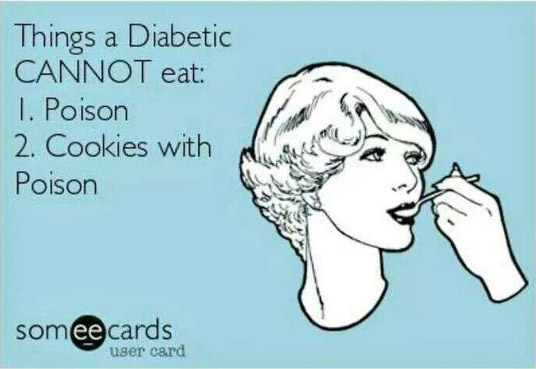What on earth is all this 'social media' about?
T1 Resources is a collection of useful links, websites and online communities that can help you manage type 1 diabetes. But if you are coming from the outside, we understand that a lot of this makes very little sense. It seems like every other week there's some new shiny Social Media channel which emerges to please the cool kids and confuse the rest of us. If you don't know where to start, here's a quick overview of some of the most popular ones within the diabetes online community (DOC).
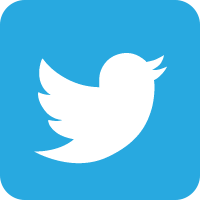
What's good about it? Twitter is a fast-moving online 'conversation' where messages are limited to just 280 characters. Information moves really quickly and people share links and photos as well as just general chit-chat. The Diabetes Online Community on Twitter has a truly global reach and once you are connected, whatever time of day you post a ranty comment about a frustrating blood glucose level someone will be awake and can respond with encouragement, sympathy or their own diabetes disasters to make you feel less alone.
What's not? Part of Twitter's strength (the 280 character limit which keeps things short and immediate) can also be a weakness where conversations can be hard to follow or join. It can also lead to slight misunderstandings as people do not always have the 'word-room' and can sound cross or grumpy without meaning to.
Tweet Chats, Hashtags and more If you'd like to find out more about connecting with other people with diabetes using Twitter and some useful hashtags to search for, read our How to use Twitter guide.

What's good about it? Facebook is one of the largest Social Media platforms in the world, so you may already have an account and be familiar with it. As well as connecting with other individuals, friends and family you can choose to connect with groups and diabetes organisations or medical companies. People share links, photos, videos and support each other in groups with asking questions and replying in comments with their own experience.
What's not? Facebook has grown rapidly and now offers a wide range of interactions and conversations though groups, pages, comments and 'likes' that were not really part of the initial plan. Anyone can start a group to encourage conversation and discussion. Unfortunately the moderation tools for those running groups are not very comprehensive which can make it quite difficult to keep groups free from spam and/or potentially dangerous advice and opinions or general unpleasantness. Well run groups offer good support but others can be a bit of a bearpit at times and some posts and advice offered are pretty scary.
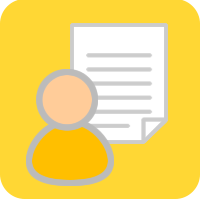
Blogs
What's good about them? A blog is a bit like an online diary, usually written by one person. They are great for 'me too' moments and realising that your own diabetes disasters are often being replicated by someone else around the corner or across the world. Blogs are very individual and can range from the hilarious to the heartbreaking - sometimes within the same post. Several other social media channels (eg Facebook and Twitter) share links to blog posts which can help you find someone whose writing style you like.
What's not? Blogs are just personal reflections on what one person thinks or does. That doesn't necessarily make those thoughts or approaches right for you or for anyone else.
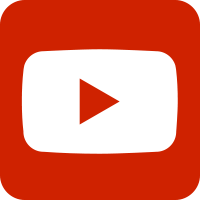
YouTube and other Video services
What's good about them? Videos can be an excellent way of seeing how to use a particular piece of diabetes technology or equipment, and allow you to see how things are done. Alternatively others are more like blog posts (sometimes called vlogs) where a person shares their thoughts, experiences or frustrations on a topic. Several people who post popular and well-respected written blogs post video content too, so you may be able to follow updates from someone you already know and like.
What's not? The quality of online videos can be quite variable, and some can be rather long which might rather eat into your mobile-data limit if you are watching on the move. Additionally it is worth remembering that anyone can post anything on these video services, and whether it is a home-spun-shaky-cam classic or has the production values of a major TV broadcaster you still need to apply the same common sense to videos as you would to any other social media content.

What's good about it? Instagram is a mobile, online photo and video-sharing service and social network which allows users to take and share photographs or short video clips (sometimes filtered to have a slightly retro look), post comments about them, and search for images/videos via hashtags (Instagram have more on using hashtags here). Instagram is linked to Facebook, Twitter, Tumblr and Flickr and people can share content between their Instagram and Facebook accounts.
What's not? Instagram has a very visual feel, but it can lack some of the depth of other social media channels.
Want to know more? Take a look at our brief guide to using Instagram to connect with other people and families living with type 1 diabetes
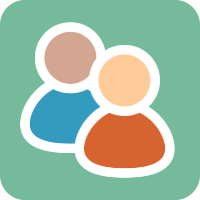
Forums
What's good about them? Forums encourage threaded discussions and question-and-answer style sharing of experiences. Forums usually have a team of volunteer moderators who ensure discussions are kept helpful, disagreements do not get out of hand and unwanted advertising is removed. Each forum will have its own 'personality' based on the sum of the personalities of its membership and the style of the moderators. You can usually browse without registering an account and get a feel for the people who visit and the tone of the conversations before 'delurking' and making your own posts.
What's not? Some forums are relatively small with only a few dozen active members while others can be enormous with many thousands of members. The former can sometimes feel a little exclusive, with everyone knowing each other really well while the latter can feel a bit impersonal and unwelcoming. Well-run forums though will always make an effort to welcome new members.
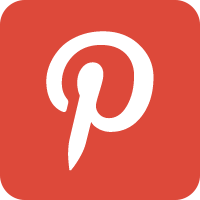
What's good about it? Pinterest allows you to collect and gather virtual 'pinboards' of links, photos and other content to refer back to. You can create and share boards themed on any topic that interests you and subscribe to content feeds via keywords.
What's not? Pinterest can be a great way to collate and organise information, but doesn't offer as much in the way of direct peer-to-peer conversation as some of the other channels.

Websites
What's good about them? A collection of words, images video and other content published on the Internet. Sometimes created by an individual but most of the ones we feature are built and maintained by charities, organisations, companies or the NHS. Really, if we need to explain what a website is then our visitors are more confused than we expected!
What's not? They tend to be good for reference but lack the interaction and two-way exchange of information and ideas that are central to Social Media.

